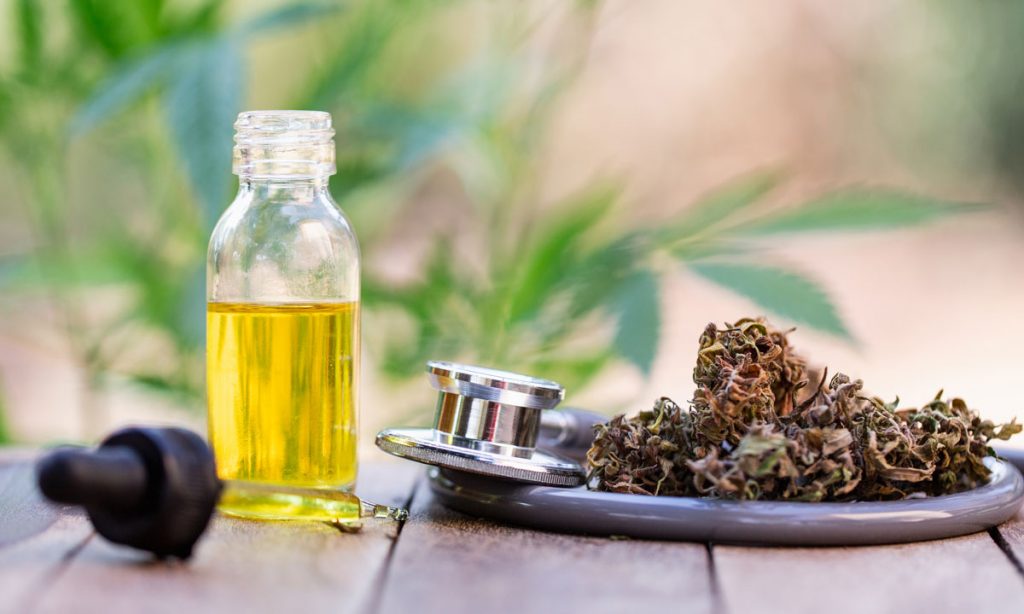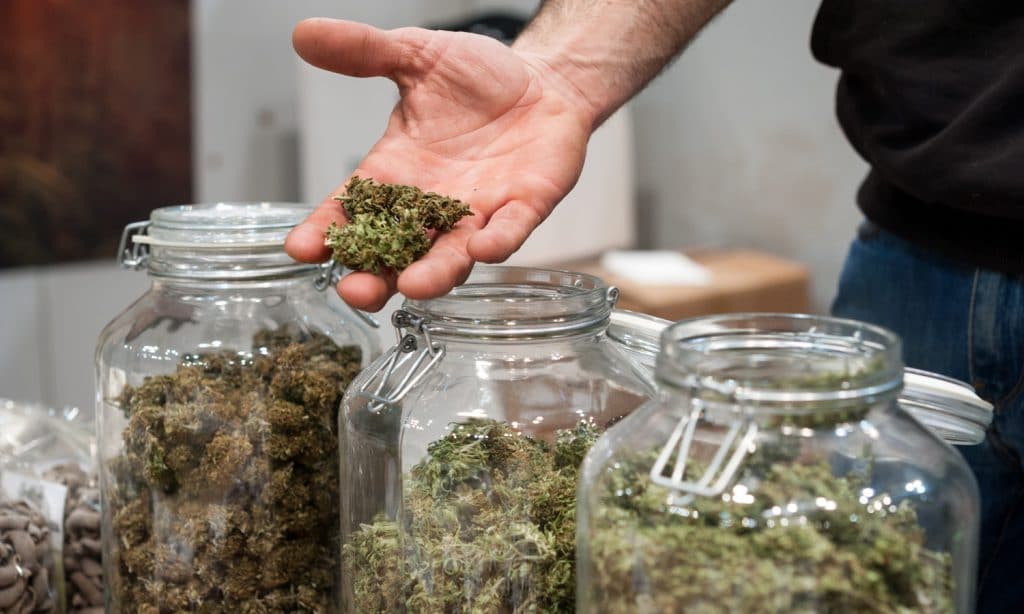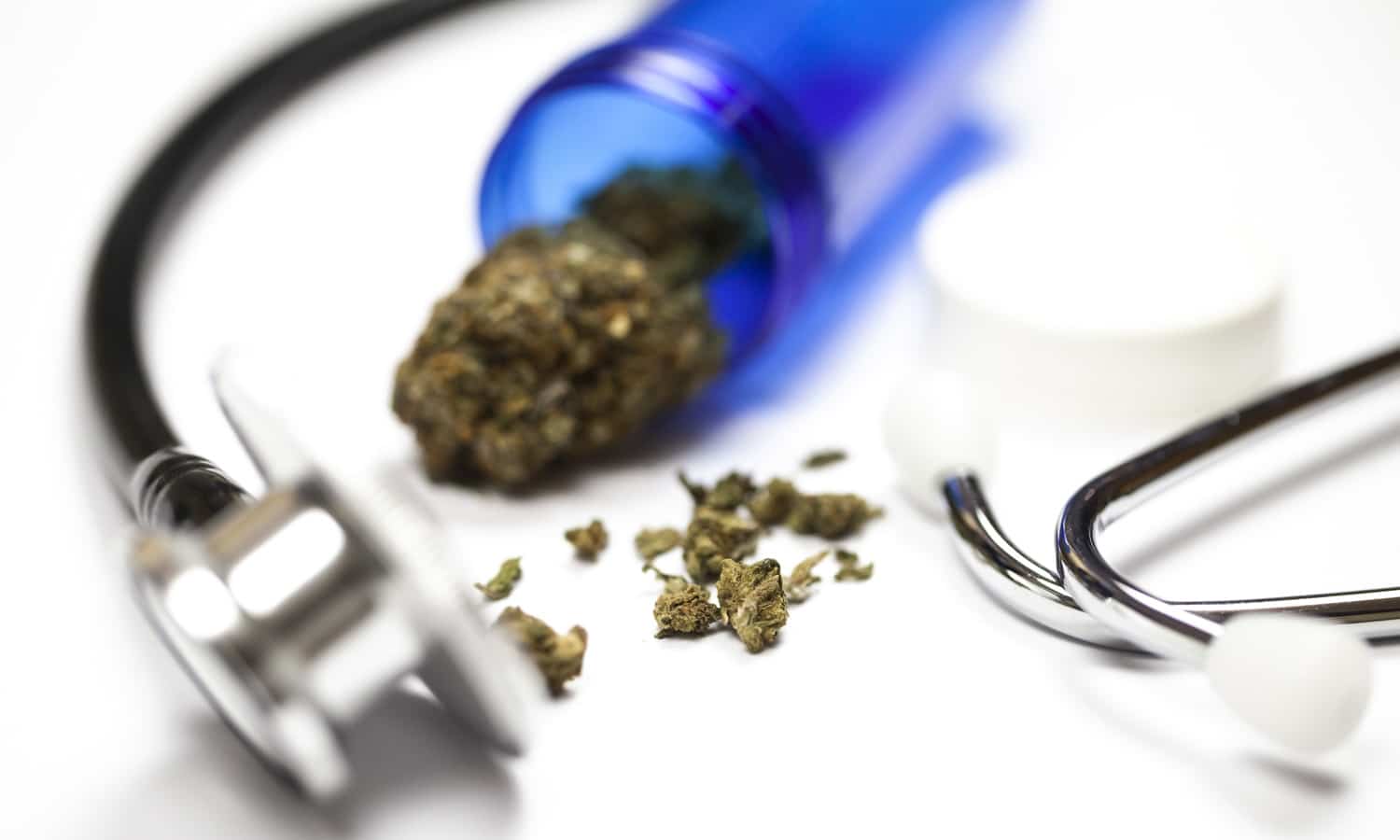The many layers of marijuana reform laws often hit those experiencing devastating illnesses particularly hard, especially given the fact that marijuana research is still stalled in the US.
Emily* is an up and coming professional in the east coast, living with an invisible chronic illness that not only causes pain, but makes working 40 hours a week nearly impossible. The solution that Emily believes has saved her career, comes in the form of a vaping “pen” and THC. Living in a state without medical marijuana access, Emily feels torn.
On one hand, she believes marijuana has helped her elevate her career by allowing her to show up to the office, but on the other, she lives in a constant fear that she describes as an entity slowly circling above her head. “There are days I don’t know how I could function without the help of my vaping pen,” Emily explains. “At some point, I might have to move, leaving my family to be able to have access to a drug that my lawmakers believe only harms me.” And Emily isn’t alone.
Todd*, a 57-year old in Indiana recently shared his story about being a first-time cannabis user. After a debilitating illness, Todd experienced a severe reaction from a pharmaceutical medicine which caused pain that was almost intolerable. Todd tried cannabis as a last resort for the excruciating nerve pain and soon found it worked better than any alternative.
Todd explained, “I immediately noticed two things when I started lighting up: First, the nerve pain was gone within minutes. Secondly, my ulcerative colitis symptoms were alleviated.” In fact, Todd’s restroom frequency went from 7 times each day to three per week. While his condition will follow him for the rest of his life, cannabis seemed to quiet hid digestive system. His care team was baffled, and with a strict diet in place, Todd has found a life-changing alternative to expensive and often side-effect-ridden pharmaceutical medicines.
However, as a business owner, Todd is forced to take a massive risk for both his business and health which has placed him in an impossible situation: He must either move to Michigan or Illinois, (where marijuana is accessible,) or break the law. “The reality is, I’m off all medicine right now,” Todd noted, “It’s really unbelievable.”
What Todd describes is well-known in research circles and those who experience similar effects on their gastrointestinal condition with THC. The Crohn’s and Colitis Foundation issued a statement in 2018 in support of research and findings around marijuana’s impact on the gut.
Long-studied for its effect on CB1 and CB2 receptors in the gut, the journal Gastroenterology and Hepatology explained the importance of studying THC and CBD for those struggling with colitis and other gastrointestinal issues, stating that:
“The most-studied receptors, CB1 and CB2, are expressed in the gastrointestinal tract, enteric nervous system, brain, and immune cells, which are areas of interest in patients with IBD. Activation of these receptors may result in gastrointestinal effects. A 2009 study in a mouse model of colitis found that when the CB1/CB2 receptors were activated, there was a decrease in inflammation. This provides a potential rationale as to the role of cannabis in the management of IBD and IBD-related symptoms.”

Health equity starts with accessibility
Todd may have reprieve. One reform bill in Indiana is changing the conversation around marijuana, and aims to research underlining effects of marijuana criminalization. Led by State Senator Karen Tallian (D-Ogden Dunes) the bill hopes to decriminalize possession for smaller amounts of marijuana (under one ounce.) State Senator Karen Tallian (D-Ogden Dunes) shared exclusively:
“It’s clear Indiana has to address its outdated and confusing cannabis laws. Our state legislature has been afraid to confront the entire cannabis question and takes every opportunity to stop debate. In 2018 alone, there were more than 22,000 arrests for marijuana possession in Indiana. We have to stop spending our community money, time and efforts on this issue when there are so many more pressing priorities. Given the fact that our neighbors in Illinois and Michigan have both legalized marijuana, it certainly makes no sense for Indiana to continue with its obsolete policies. Decriminalization is the minimum that we should be doing to stop putting Hoosiers behind bars for something that is legal in our neighboring states.”
Senator Tallian is gaining support quickly with NORML, which is mobilizing in Indiana on the heels of both Illinois and Michigan electing to decriminalize marijuana within the past month. A study completed in November 2019 by Pew Research Center, showcases that over two-thirds of Americans support legalization of marijuana. Among its findings, Pew noted:
- The share of U.S. adults who oppose legalization has fallen from 52% in 2010 to 32% today.
- An overwhelming majority of U.S. adults (91%) say marijuana should be legal for medical use while 59% of individuals polled stated it should be legal for recreational use.
- Only 8% of those polled stated it should remain illegal in all circumstances. The silent generation, (born between 1928 and 1945) had a rate of opposition at 64%.

Dispensary drought
Even more worrisome, a lack of access tends to leave those already marginalized with lower incomes without options, even when dispensaries are in place. Dr. Julia Arnsten, chief of the Division of General Internal Medicine at Albert Einstein College of Medicine and Montefiore Health System penned a piece that described in detail the barriers to new methods of care and health disparities that are beginning to take place. She said:
“Without a more equitable system, this new health care disparity will become entrenched alongside so many others, leaving many of those most in need of medical cannabis without access to it.”
Describing how marijuana can be used to avoid dependence on opioids, Dr. Arnsten explains that data gathered from the last two years of New York’s Medical Marijuana program pinpoints an important finding:
“More than 70% of registered patients seek medical cannabis to treat chronic or severe pain, often in an effort to avoid prescription opioid medications.”
While the doctor advocates for patients to purchase marijuana from legal dispensaries, many still obtain marijuana from other unregulated sources. The reasons, the doctor explains, have to do with cost, transportation woes, a lack of insurance coverage and the inability to pay via credit card.
The many layers of marijuana reform laws often hit those experiencing devastating illnesses particularly hard, especially given the fact that marijuana research is still stalled in the United States due to the drug’s classification. Whether drought of inaccessibility, the effect of marijuana legislation has real-world effects on family, neighbors and those in the community.
*The names have been changed to protect the identities of those interviewed for this article.


